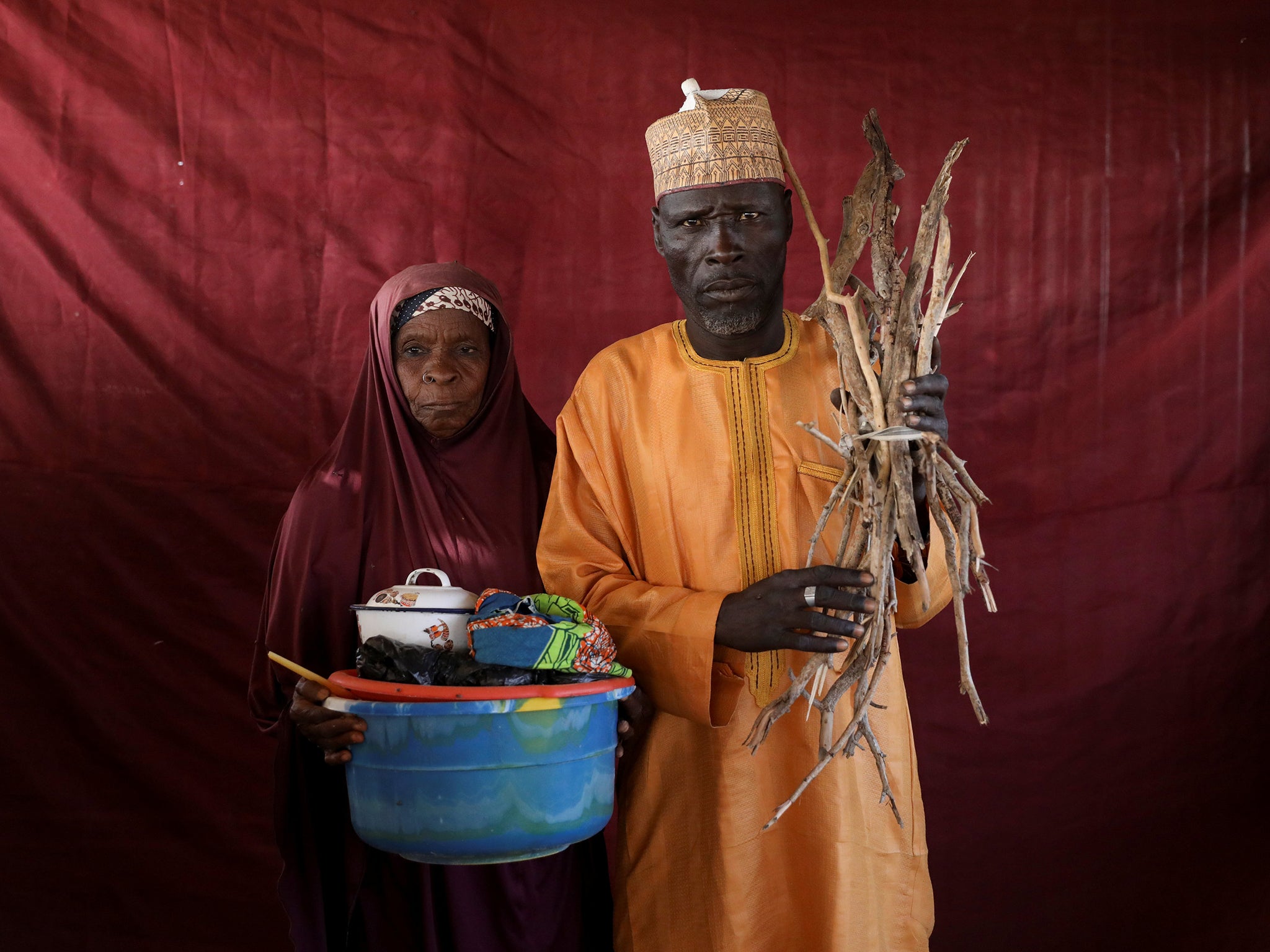Boko Haram crisis: Pictures reveal the items displaced people barter with in order to survive
With little money to hand at the best of times, and struggling to find the goods they need, bartering is key to getting by for more than 21,000 displaced people in Bakasi camp

Cash cannot be king for the people of Bakasi camp.
Instead, a small bundle of firewood can be traded for some milk. An unwanted bowl of baby fish is good in exchange for cooking oil. Peanuts are always in high demand.
With little money to hand at the best of times, and struggling to find the goods they need, bartering is key to getting by for Bakasi’s 21,000-plus displaced people.
The eight-year Boko Haram insurgency in Nigeria’s north-east has displaced around two million people, some in Nigeria and some overseas. The United Nations calls it one of the world’s worst humanitarian crises.
More than 670,000 of those people live in camps in Nigeria’s north-east, where cash is hard to come by, opportunities for work are rare and the food and aid they get is often not what they want.
The dusty Bakasi camp sits on the outskirts of the city of Maiduguri in Borno, the spiritual home of the Islamist Boko Haram movement, which wants to establish a caliphate in the region surrounding Lake Chad.
In Bakasi, the displaced frequently swap the little they have for their preferred goods, whether it’s herbs and spices to make soup, peanuts to help a breastfeeding mother produce milk or laundry detergent for a family’s clothes.
“We don’t get money, that’s why we do this,” said Umaru Usman Kaski, hoping to trade a small bundle of firewood worth about 50 naira (10p) to support his family of eight.
While many would prefer money, cash distribution in Nigeria’s north-east is fraught with risk.
Boko Haram displaced barter to survive
Show all 15Reports of corruption in the humanitarian crisis relief-efforts are rife. Those involved, such as government officials, aid workers and soldiers, are alleged to skim from the top before distributing aid.
Many of those responding to the crisis are also concerned that with economic prospects dim for the foreseeable future, millions of people will become dependent on the aid, the vast majority of it coming from overseas.
Until then, Nigeria’s displaced are finding their own ways to balance what they receive with their needs.
Abdulwahal Abdulla, a 50-year-old living in Bakasi for three years, hoped to trade his bowl of young tilapia worth roughly 150 naira for cooking oil.
Abdulla, no fan of the fish, had bought them because products were scarce and it was the only thing he could buy at the time, he said.
Nasiru Buba was trading packets of laundry detergent. He had bought them after working as a porter in the city, pushing a cart loaded with people’s belongings, and wanted to trade them for peanuts.
“My wife has just delivered a baby and the breast is not coming out with milk,” said Buba.
“I needed to get peanuts for her to eat so she will produce sufficient breast milk, and I don’t have any money. When I got the detergent I was not in need of anything, but that changed.”
Subscribe to Independent Premium to bookmark this article
Want to bookmark your favourite articles and stories to read or reference later? Start your Independent Premium subscription today.

Join our commenting forum
Join thought-provoking conversations, follow other Independent readers and see their replies